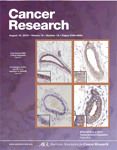|
A recent paper in the Journal of
Cancer Research has claimed that pancreatic tumor cells use
fructose to proliferate. What does this mean to us? This means
that the soft drinks (Coke, Pepsi etc), fruit drinks, candy,
cookies, ketchup, salad dressings, cereal bars, frozen dinners
and countless other processed foods like sweetened bread has
the potential to promote cancer growth. The validity of this
research is already questioned by Beverage associations and
Fructose associations. When the debate is going on, we want
to provide you with awareness on this topic.
Fructose / High Fructose
Corn Syrup (HFCS)
Fructose or fruit sugar and high-fructose
corn syrup (HFCS) which is 55% fructose and 42% glucose have
been aggressively promoted as natural sugars. Up until 20
years ago, they were not commercial sweeteners as they are
now.
HFCS is routinely added to processed foods and beverages,
bread and a range of other foods.
Corn syrup is a food syrup, which is made from the starch
of maize and composed mainly of glucose. Corn syrup is used
in foods to soften texture, add volume, prevent crystallization
of sugar, and enhance flavor. High-fructose corn syrup is
created when corn syrup undergoes enzymatic processing that
produces a sweeter compound containing higher levels of fructose
Researchers reported in 2004 in the American Journal of Clinical
Nutrition that the U.S. consumption of high fructose corn
syrup went up 1,000 percent between 1970 and 1990,
Even 25 years back fructose did not have a very good reputation.
High fructose consumption has been figured as a causative
factor in heart disease. It raises blood levels of cholesterol
and triglyceride - another type of fat. It makes blood cells
more prone to clotting, and accelerate the aging process.
With a high intake of high-fructose corn syrup, people might
show signs of a copper deficiency and may need to enhance
their copper intake.
Fructose is exclusively metabolized into fat by the liver
Recent work also suggests that fructose influences appetite
hormones. A high intake of fructose may blunt satiety and
trick you into overeating.
Fructose and Cancer:
It is a widely known that cancer cells use glucose to fuel
their growth, recent findings are the first to link fructose
to cancer growth.
In this study, the researchers grew pancreatic cancer cells
in lab dishes and fed them both glucose and fructose. Tumor
cells thrived on sugar, but they used the fructose to proliferate.
Not only did cancer cells prefer fructose, the sugar also
triggered cellular activities that enabled malignant cells
to use both glucose and fructose more rapidly.
Although, this study was done in pancreatic cancer, the researchers
noted that the results may not be unique to that type of cancer.
Fructose in natural foods:
If you eat predominantly natural foods, and avoid large quantities
of processed foods, you have little to worry about.
Fructose accounts for only 5 to 7.7 percent of the wet weight
of cherries, pears, bananas, grapes, and apples. That's about
5.5 to 8 teaspoons per pound of fresh fruit. There's even
less fructose, 2 to 3 percent or roughly 2 to 3 teaspoons
per pound in strawberries, blackberries, blueberries, oranges,
and grapefruit. Honey, refined by bees, contains 40 percent
fructose, but its extreme sweetness deters most people from
consuming it in large amounts.
So, beware of processed foods and do examine the labels on
food.
Read the Article's abstract in
Cancer Research (by clicking on the Journal Cover picture):
"Fructose Induces Transketolase Flux to Promote Pancreatic
Cancer Growth"

Just for your smile!
 "Coffee
is not "Coffee
is not
my cup of tea."
-- Sameul Goldwyn
|